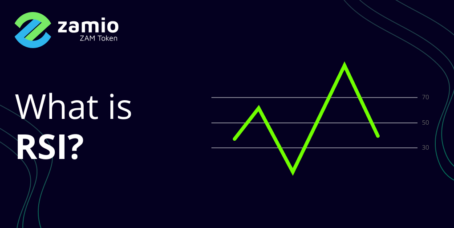Crypto traders have always complained about high gas and transaction fees. If you are planning to invest in cryptocurrencies, you should know that there are basically three types of transaction fees in crypto trading: exchange fee, network fee, and wallet fee.
Table of Contents
What are the different types of fees for cryptocurrency transactions?
As mentioned above, the types of fees that are inherent in DeFi include exchange fees, network fees, and wallet fees.
An exchange fee is a fee charged by a cryptocurrency exchange for executing a buy or sell order. These types of fees are also one of the main sources of income for exchanges and are often an integral part of their business operations and strategy.
Network commission is a commission paid to the network, that is, payment to cryptocurrency miners for the services they provide. Unfortunately, network fees are demand-driven, meaning when the network is busy, fees increase dramatically, and vice versa. A wallet fee is charged when people withdraw or send cryptocurrency from one wallet to another. But now many exchanges and applications have wallets built into the platform. In these cases, commissions are usually minimal, if not zero.
In general, a cryptocurrency transaction fee is a fee that a user must pay when transferring funds to an exchange to buy cryptocurrency or when making cryptocurrency transactions. However, these fees and their amount depend on the underlying network and exchange.
How are cryptocurrency fees calculated?
For cryptocurrencies, transaction fees depend on the network used. For example, Bitcoin, Ethereum, Litecoin, and Dash all have different transaction fees.
Commission in the Ethereum network
The Ethereum network evaluates the fee in gas, and the gas determines how computationally expensive a transaction is. In order to complete a transaction or implement a smart contract, users must pay a gas fee. Interestingly, in a sense, the fee that users pay for each cryptocurrency transaction is determined by the amount they are willing to spend. In such cases, we are talking about a certain “auction”. The more users are willing to pay for the processing of their transactions, the faster they will be processed. This is because the miners responsible for confirming the transaction prefer transactions with higher fees over lower ones.
Thanks to this step-by-step procedure, offering better terms makes sense when it comes to thousands or millions of transactions. People sending large amounts of money will not mind paying a minimum fee compared to this amount. On the other hand, if users make small transactions, then there is no need to outbid other transactions. However, keep in mind that small transactions are also processed, just a little slower.
Bitcoin Transaction Fee Calculation
The amount of remuneration can be calculated manually. Theoretically, this is not difficult if you understand the essence of the process. Any transaction is a program code, a record of information in a network block. Payment data is characterized by volume or weight. The transaction consists of conditional 3 parts:
- Metadata – description of the operation, service information.
- Inputs – information about where the coins came from, signatures confirming their presence.
- Exit – volume and addresses for transfer.
All of the above affects the weight of the transaction. Payment is calculated in Satoshi for each byte of information. You can find out the average commission value (for example, on a monitoring site) and multiply by the volume of the transfer. Calculation of payment for a transaction weighing 1 Kb at a rate of 3 satoshi / byte:
1000 Bytes * 3 Satoshi = 3000 Satoshi = 0.00003 BTC = $1.92 (as of November 2021).
However, there are simpler methods for determining the size. The activity of the network is constantly changing, the factors affecting the transfer fee are changing. With manual calculation, you can make a mistake and accidentally send an over or under amount of the fee.
Which cryptocurrencies have the lowest transaction fees?
Transferring $1,000 on the Bitcoin network will cost about $5 and $3 on the Ethereum network. However, in the TRON network, a similar transaction will cost less than $1. Other cryptocurrencies with low transaction fees include Ethereum Classic, Nano, IOTA, Bitcoin SV, Bitcoin Gold, Dash, Litecoin, and DOGE.
Understanding how some networks manage to charge lower fees than others requires understanding the mechanics of consensus. The bottom line is: choose a platform that processes transactions faster and at an affordable price.
Conclusion
Transaction fees have always been an important part of the financial and investment services sector, including in the field of cryptocurrencies. This is because the funds raised in the form of these fees are used by the exchanges to run their business so that they, in turn, can provide opportunities for investors to invest in cryptocurrencies. Additionally, crypto network transaction fees are necessary as paying them incentivizes miners to continue their role in maintaining the blockchain network.








